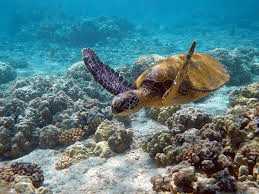A press conference was held at the end of June announced the release of a new report about the sustainability of global marine fisheries in the 21st century titled Predicting Future Oceans.
The report is a product of the Japanese Nippon Foundation and University of British Columbia’s (UBC) Nereus Program. It notes that continued CO2 emissions are leading to changes in ocean temperature, acidity and oxygen levels that have been unprecedented over the last several thousand years. These changes in ocean conditions will affect biological productivity in the ocean, impacting organisms ranging from plankton to fishes. Climate change Along with overfishing and habitat destruction, climate change is anticipated to lead to a decline in commercial fishing in many regions and altered marine biodiversity food webs. While aquaculture will play a role in providing a source of marine protein for a growing global population, the long-term ecological and social sustainability of aquaculture is unclear. An improved framework for global ocean governance will be needed to ensure sustainable fishing in the future. At the press conference, Associate Professor William Cheung from UBC who is also one of the co-directors of the Nereus Program said, “The types of fish we will have on our dinner table will be very different in a few decades from now.” He added, “fishing nets will be catching more warm-water species and smaller fish, thus fish supply through both domestic and overseas fishing as well as imported fish will be affected.”Nereus findings
The Nereus Program is an interdisciplinary ocean research initiative in which the Nippon Foundation is collaborating with seven institutes around the world, including UBC and Princeton University. As the world’s only comprehensive research program focusing on the future of the oceans, about 30 fellows and 14 researchers are carrying out interdisciplinary research, covering a wide range of topics from climate to international law. Some of the results have already been published in numerous academic journals, including Science. For more information, including the full report click here.






